Life
Sign up for our newsletter
We summarize the week's scientific breakthroughs every Thursday.
-
 Genetics
GeneticsEarly Polynesians didn’t go to Americas, chicken DNA hints
Contamination of ancient chicken DNA may explain previous report linking Polynesians to South America.
-
 Genetics
GeneticsGiant moa thrived before people reached New Zealand
Humans probably caused the extinction of giant wingless birds called moa in New Zealand, DNA evidence suggests.
-
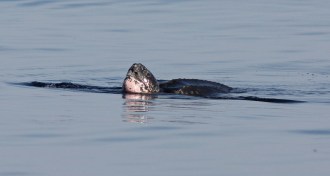 Animals
AnimalsHow to count a sea turtle
Trends, not absolute numbers, matter more when it comes to conservation efforts for sea turtles.
-
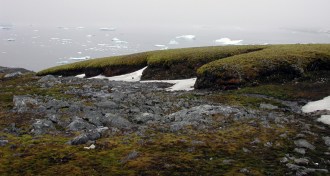 Plants
PlantsMoss still grows after 1,500-year deep freeze
After incubating slices of moss that have been frozen for 1,500 years, the plants began to grow again.
-
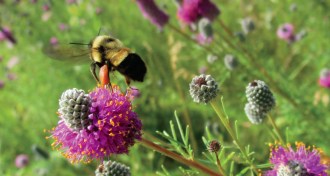 Ecosystems
EcosystemsDo your bit for bumblebees
The Xerces Society for Invertebrate Conservation and its partners have launched the Bumble Bee Watch website to track sightings. When you see a bee bumbling around, snap a photo.
-
 Life
LifeThe Monkey’s Voyage
By 26 million years ago, the ancestors of today’s New World monkeys had arrived in South America. How those primates reached the continent is something of a conundrum.
By Erin Wayman -
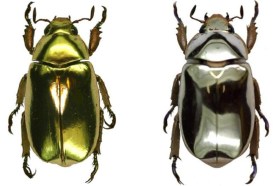 Animals
AnimalsThere’s plenty of bling in the natural world
Beetles that look like solid gold are just the start to jewel-like and metallic looks in nature.
-
 Life
LifeProtein linked to motor nerve cells being fast or slow
The protein, Delta-like homolog 1, is made in 30 percent of motor neurons and helps to determine at which speed the cells work, research shows.
-
 Animals
AnimalsAmphibian diseases flow through animal trade
Discovery of chytrid fungus and ranaviruses in frogs and toads exported from Hong Kong shows how pathogens may spread.
-
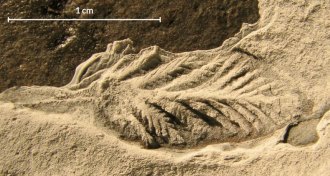
-
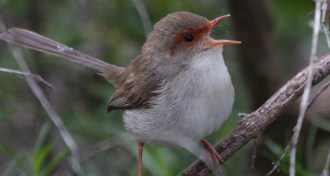 Animals
AnimalsSing a song of bird phylogeny
A new study challenges assumptions about birdsong, finding that the majority of songbird species have female singers.
-
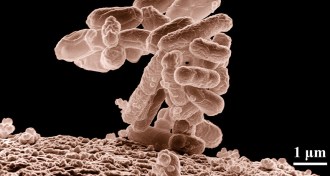 Health & Medicine
Health & MedicineImbalance in gut bacteria may play role in Crohn’s disease
Identifying the onset of Crohn’s disease may best be done by looking at bacteria in the cellular linings intestinal tissue.